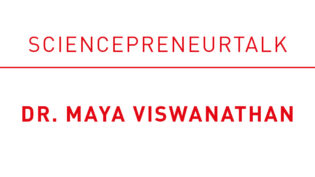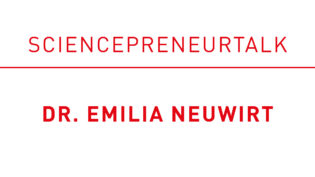
Healthy Minds, Healthier Research
Hanna Sänger and Dr. Kristin Vielberg on burnout, balance, and bringing self-awareness into science
Written by
What does it take to make academia a healthier place? For many researchers, the PhD journey is as much a personal transformation as it is an academic one. For Hanna Sänger and Dr. Kristin Vielberg, it became the starting point of a mission: to make this journey a healthier, more mindful one.
Together, they founded PhDpositive, a service dedicated to improving well-being and self-management in academia. Through workshops, peer groups, and coaching, they help researchers reflect on their needs, set boundaries, and rediscover joy in their work. In this interview, they share their personal stories, the lessons they’ve learned from building a startup in the mental health space, and their vision for a more resilient academic culture.
Hanna and Kristin, can you tell us about your paths before founding PhDpositive? How did your experiences lead you here?
Kristin: I started out in Geodesy and Geoinformation at the University of Bonn, where I later completed my PhD and worked as a research associate for several years. I really enjoyed the mix of technical precision and international collaboration! My projects were funded by DFG, DLR, and even the European Space Agency. But over time, I realised that what fascinated me most was not only research itself, but also how people function within it, how they stay motivated, manage stress, and grow as individuals. That’s what eventually led me to train as an NLP Coach and Practitioner, and to start my own path outside of academia in 2025.
Hanna: My journey was very different. I left academia after a burnout during my PhD. That time forced me to pause and re-evaluate everything: my goals, my health, and what kind of work really energises me. Therapy helped me rebuild, and in the process, I discovered how much I wanted to support others who face similar struggles. That was when I decided to train as a psychological counsellor and coach. When I met Kristin through a mutual friend, it immediately clicked. Our experiences couldn’t have been more different, but our motivation was the same.
Which experiences during your PhDs shaped your professional interests the most?
Hanna: I think many people underestimate how deeply the PhD experience affects you. It’s not just about research. It’s about identity, belonging, and resilience. For me, the lack of healthy structures made the difference. That’s why I now focus so much on creating spaces where researchers can reflect and find balance.
Kristin: My experience was actually positive. I had a very supportive supervisor, attended conferences regularly, and built a strong network in my field. But even in a good environment, I saw how fragile mental well-being can be. That’s why I always say: “The PhD doesn’t leave you unchanged.” You learn a lot about yourself, but that learning shouldn’t come at the expense of your health.
Written by
When did you both realise that mental health and self-management would become your mission?
Kristin: I knew I didn’t want to stay in research forever, but I didn’t want to leave the academic world behind either. What drove me was the wish to make the system better from within. During my PhD, I often thought: “Why are we only taught research methods, but not how to manage ourselves?” Simple tools like time management, communication, and setting boundaries can make a huge difference, especially if you learn them early. With PhDpositive, I want to help researchers find their own way in academia without losing themselves in the process.
Hanna: For me, it started with healing. When I left my PhD, I felt like I had failed. And in the beginning, it didn’t feel good to share my story. But the more people I told, the more I saw: Everyone has either been through a similar struggle or knows at least one other person who has. I realised how much my experience had taught me about the system. Today, being self-employed gives me direction and energy. And it feels incredibly meaningful to offer others the support I once needed myself.
What inspired you to create PhDpositive, and what gap in academia did you want to address?
Hanna: Many PhD students assume exhaustion or isolation is a normal part of the process. We want to change thatand start bringing into focus again what a healthy relationship with your job as a researcher can look like.
Kristin: Exactly. We want to prepare researchers early, ideally from the very beginning. Our goal is to help them recognise their needs, manage challenges, and navigate uncertainty with confidence.
What is the mission of PhDpositive, and how do your workshops and peer groups bring it to life?
Kristin: Our mission is to empower PhD candidates and postdocs to handle the emotional and organisational challenges of academic life with confidence and clarity. We do this through practical, research-based workshops and peer groups that focus on mental health, motivation, and self-management.
Hanna: Our peer groups meet for six sessions that combine short workshops with open exchange. It’s not about lecturing! It’s about connection and practice. Participants often tell us how relieved they feel to realise they’re not alone.

How do you personally make sure that your own mental health stays a priority while running your business?
Hanna: For me, it’s about listening to my body and planning around my energy levels, including my cycle. Taking breaks and setting boundaries is not optional. It’s part of working sustainably.
Kristin: The same for me. I’m an early riser and value my routines, like having a proper lunch break and time offline. Being self-determined also means being self-responsible about your well-being.
Founding a company is a big step. What were some of the challenges in getting PhDpositive off the ground?
Hanna: Definitely the bureaucracy! From applying for the EXIST Women scholarship to developing the business plan. But it also gave me the structure I needed to turn our idea into something concrete. The programme was an incredible experience: we attended workshops on presence and moderation, worked with professional coaches, and expanded our network. But working for YES for two years had given me a good picture of the challenges and chances that founders face, so many steps and decisions already felt familiar.
Kristin: For me, the hardest part was switching from a scientific mindset to an entrepreneurial one. Suddenly, it’s not about publishing papers, but about reaching people. I had to learn new skills — sales, communication, facilitation — but those have become some of my biggest strengths.
Kristin, you once said: “With perfectionism, you cannot be successful as an entrepreneur.” How did both of you learn to let go of perfectionism?
Kristin: I had to actively unlearn it. At one point, I even got coaching for my own perfectionism. Hanna also helped me a lot! She’s the one who taught me to just send emails when they’re ready, without over-polishing. It saves so much time!
Hanna: Yes, that’s true. I’ve never been overly perfectionist and more of a procrastinator, to be honest. But learning that “done is better than perfect” really helped me move faster and with more ease.
You clearly complement each other well. What makes your collaboration work?
Hanna: Communication is key. We draw on a lot of what we teach: listening, being transparent, and addressing tensions early. It keeps our partnership healthy and enjoyable.
Kristin: We understand and adapt to each other! Thinking about our very different rhythms – I’m an early bird, and Hanna hits her stride later in the day – we adapted to it and are now planning all our meetings together in the afternoon instead of forcing them to be in the morning or evening.

What kind of feedback from participants has stayed with you the most?
Hanna: When someone tells us, “This workshop should be mandatory for every PhD,” that means a lot. It shows that people truly need this space.
Kristin: I love when participants share that they feel seen and understood. Or, that they’ve finally found practical tools that make their day-to-day research life easier. Those moments are the best reward.
What’s your vision for PhDpositive in the coming years?
Kristin: We want to reach as many PhDs as possible with accessible, practical tools and peer formats. Ultimately, every researcher should know what’s healthy and what’s not.
Hanna: Our dream is that, as more mindful and self-aware people move into leadership roles, academia itself will become a healthier place.
Finally, what advice would you give to PhD students who feel completely overwhelmed?
Kristin: You’re not alone. Reach out, talk to your peers, and don’t hesitate to seek support. Sometimes, a simple conversation can change everything.
Hanna: And don’t wait for others to fix the system for you. Take small steps to take care of yourself and ask your institution to offer workshops that support your well-being. You deserve that!

What happens next?
Check out our event calendar for upcoming workshops. Stay tuned for more updates, opportunities, and success stories!
Connect with Hanna and Kristin via LinkedIn!
Interviewer & Editor, Design: Bianca Cramer







